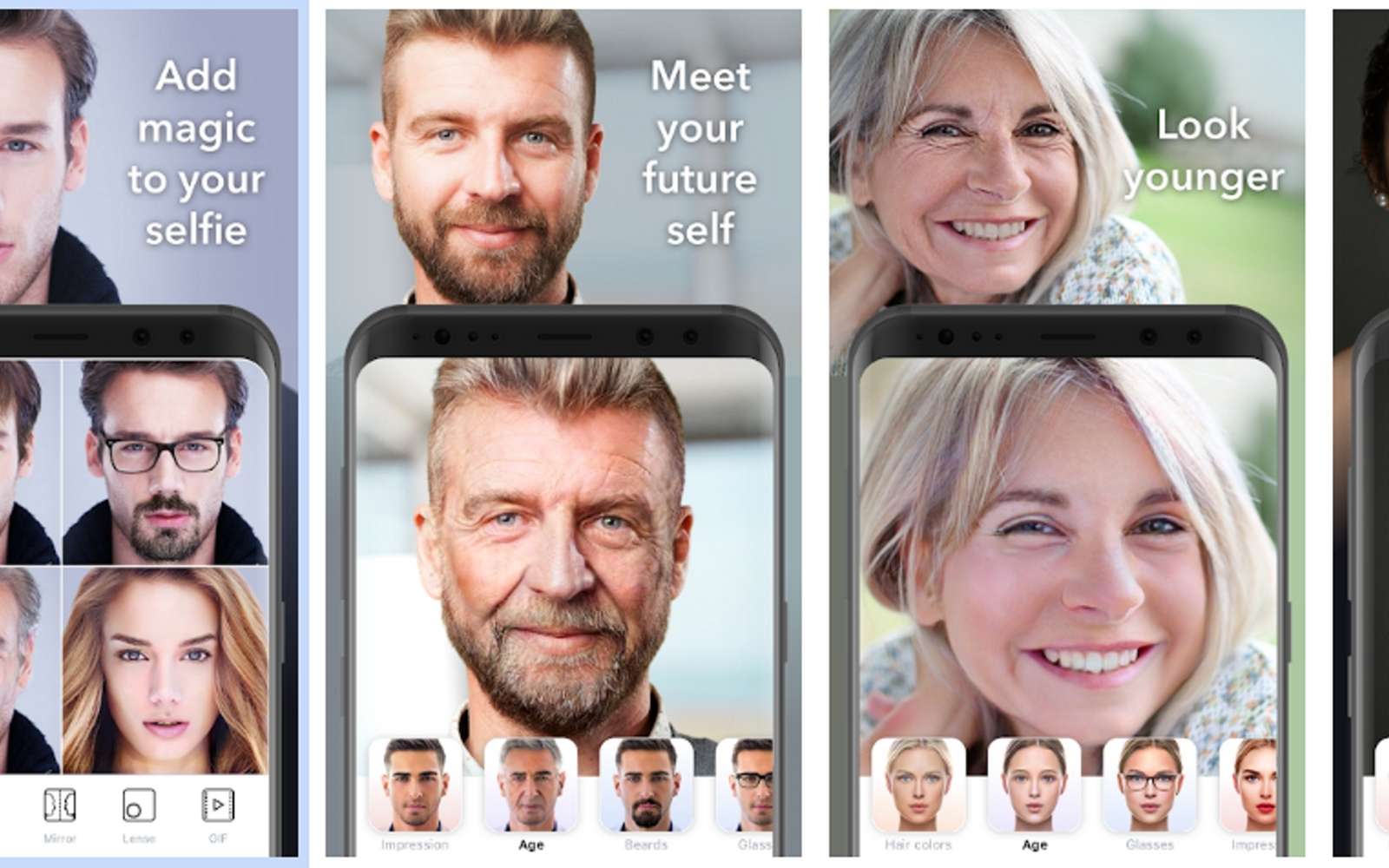Featured application of the moment, FaceApp is accused of accessing all the photos of the smartphone and to monopolize them. Futura takes stock of this case.
This is the app of the moment. Pushed on social networks by celebrities, FaceApp lets you see what your face will look like when you are a senior. The result is impressive realism. The app also has many filters to turn you into a girl or boy or to apply different styles. To use it, simply take a selfie from the mobile and apply a filter.
Then you have to save the result or share it. The free version limits the number of filters; to unlock all, you have to opt for a package of twenty euros per year. In order to carry out the aging operation, the snapshot is transmitted on the servers of the company and processed via artificial intelligence algorithms.
As a result of the sudden awareness of this application developed by a Russian company, the questions raised around the confidentiality of data as much as those of cliches fuse on social networks. According to many Internet users, FaceApp would grab all the photos on your smartphone.

Your photos do not age on servers
On this point, which has been verified by several information sites and specialists, there are no more privacy concerns than for other applications. FaceApp only uploads the photos you have selected on its servers with your consent and does not have access to all the snapshots of your mobile library.
However, the question of the future of the photos collected by the servers of the company arises. In its terms of use, the publisher Wireless Lab OOO, based in St. Petersburg (Russia), explains that the photos processed by its filters can be re-used without compensation and time limit for what it wants. Analyzed by Le Figaro, these conditions of use would not be in conformity with the European regulation RGPD.
To answer his accusations, the firm explained to the TechCrunch website, that most images are removed from the servers within 48 hours by adding that it is possible to request the deletion of its data directly to the support team via a form. This announcement, however, contradicts the operation of FaceApp’s AI. This requires a lot of data to be able to improve. For once, it seems obvious that many selfies, and their changes, remain much longer on its servers that the company does not say.